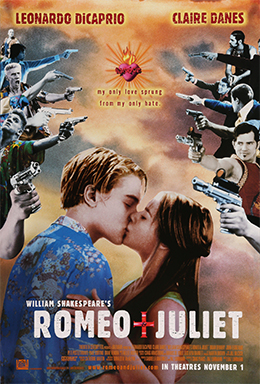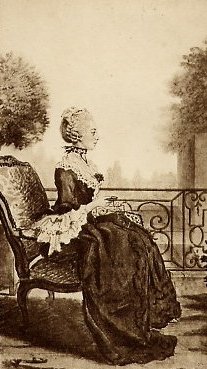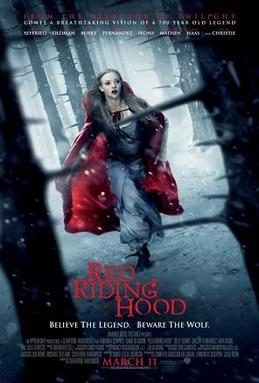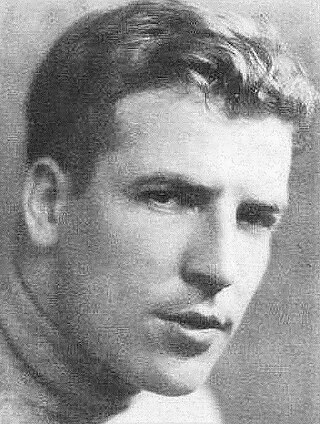
Leonardo Wilhelm DiCaprio is an American actor and film producer. Known for his work in biographical and period films, he is the recipient of numerous accolades, including an Academy Award, a British Academy Film Award and three Golden Globe Awards. As of 2019, his films have grossed over $7.2 billion worldwide, and he has been placed eight times in annual rankings of the world's highest-paid actors.

Growing Pains is an American television sitcom created by Neal Marlens that aired on ABC from September 24, 1985, to April 25, 1992. The show ran for seven seasons, consisting of 166 episodes. The series followed the misadventures of the Seaver family, which included psychiatrist and father Jason, journalist and mother Maggie, and their children Mike, Carol, Ben, and Chrissy.

William Shakespeare's Romeo + Juliet is a 1996 romantic crime film directed, produced, and co-written by Baz Luhrmann. It is a modernized adaptation of William Shakespeare's tragedy of the same name, albeit still utilizing Shakespearean English. The film stars Leonardo DiCaprio and Claire Danes in the title roles of two teenagers who fall in love, despite their being members of feuding families. Brian Dennehy, John Leguizamo, Harold Perrineau, Pete Postlethwaite, Paul Sorvino and Diane Venora also star in supporting roles. It is the third major film version of the play, following adaptations by George Cukor in 1936 and by Franco Zeffirelli in 1968.

Jeanne Julie Éléonore de Lespinasse was a French salon holder and letter writer. She held a prominent salon in Paris during the Enlightenment. She is best-known today, however, for her letters, first published in 1809, which offer compelling accounts of two tragic love affairs.

Revolutionary Road is American author Richard Yates's debut novel about 1950s suburban life in the East Coast. It was a finalist for the National Book Award in 1962, along with Catch-22 and The Moviegoer. When published by Atlantic-Little, Brown in 1961, it received critical acclaim, and The New York Times reviewed it as "beautifully crafted ... a remarkable and deeply troubling book." In 2005, the novel was chosen by TIME as one of the 100 best English-language novels from 1923 to the present.

Don Winslow is an American retired author best known for his award-winning and internationally bestselling crime novels, including Savages, The Force and the Cartel Trilogy.

Casque d'Or is a 1952 French historical drama film directed by Jacques Becker. It is a Belle Époque tragedy, the story of an ill-fated love affair between characters played by Simone Signoret and Serge Reggiani. The story was loosely based on an infamous love triangle between the prostitute Amélie Élie and the Apache gang leaders Manda and Leca, which was the subject of much sensational newspaper reporting during 1902.

The Beach is a 2000 adventure drama film directed by Danny Boyle, from a screenplay by John Hodge, based on the 1996 novel of the same name by Alex Garland. The film stars Leonardo DiCaprio, Tilda Swinton, Virginie Ledoyen, Guillaume Canet, and Robert Carlyle. It was filmed on the Thai island of Ko Phi Phi Le.

Shane Salerno is an American screenwriter, producer, director, and Chief Creative Officer of The Story Factory. His writing credits include the films Avatar: The Way of Water, Armageddon, Savages,Shaft, and the TV series Hawaii Five-0. He was chosen by director James Cameron to co-write the four sequels to Avatar,Avatar: The Way of Water,Avatar: The Seed Bearer (2024), Avatar: The Tulkun Rider (2026), and Avatar: The Quest for Eywa (2028). He spent ten years writing, producing, financing, and directing the documentary Salinger, and co-writing with David Shields the companion book which became a New York Times bestseller.

The Man in the Iron Mask is a 1998 American action drama film written, directed, and produced by Randall Wallace. It stars Leonardo DiCaprio in a dual role as the title character and the villain, Jeremy Irons as Aramis, John Malkovich as Athos, Gérard Depardieu as Porthos, and Gabriel Byrne as D'Artagnan. Some characters are from Alexandre Dumas's D'Artagnan Romances and some plot elements are very loosely adapted from his 1847-1850 novel The Vicomte de Bragelonne. This was Leonardo DiCaprio's first film following the success of Titanic (1997).

Super Force is an American action-adventure TV series which aired from October 1990 to May 1992.

Los ricos también lloran is a popular telenovela produced in Mexico in 1979, starring Verónica Castro, Rogelio Guerra and Rocío Banquells. Castro also sang the theme Aprendí a Llorar, a song written by Lolita de la Colina. The telenovela was produced by Valentín Pimstein and Carlos Romero, it was directed by Rafael Banquells. The story was written by Inés Rodena and adapted by Valeria Philips.

The Death and Life of Bobby Z, also known as Bobby Z and Let's Kill Bobby Z, is a 2007 American-German action film, directed by John Herzfeld, and starring Paul Walker, Laurence Fishburne, Olivia Wilde, and Joaquim de Almeida. Sony Pictures Worldwide Acquisitions Group released the film direct-to-video in the United States. Don Winslow, who wrote the novel on which the film is based, acknowledged that the screen adaptation was not successful.

Shibumi is a novel published in 1979, written in English by Trevanian, a pseudonym of Rodney William Whitaker.

The Leper of Saint Giles is a medieval mystery novel by Ellis Peters, set in October 1139. It is the fifth novel in The Cadfael Chronicles and was first published in 1981.

Red Riding Hood is a 2011 American romantic horror film directed by Catherine Hardwicke, and produced by Leonardo DiCaprio, from a screenplay by David Leslie Johnson. The film is very loosely based on the folk tale "Little Red Riding Hood" collected by both Charles Perrault under the name Le Petit Chaperon Rouge and several decades later by the Brothers Grimm as Rotkäppchen. It stars Amanda Seyfried as the title role, with Gary Oldman, Billy Burke, Shiloh Fernandez, Max Irons, Virginia Madsen, Lukas Haas and Julie Christie in supporting roles.
Por Amor is a Brazilian telenovela created by Manoel Carlos, starring Regina Duarte and Gabriela Duarte in the main roles. It replaced A Indomada and preceded Torre de Babel, and was the 55th telenovela to be aired by TV Globo.

Leonardo DiCaprio is an American actor who began his career performing as a child on television. He appeared on the shows The New Lassie (1989) and Santa Barbara (1990) and also had long running roles in the comedy-drama Parenthood (1990) and the sitcom Growing Pains (1991). DiCaprio played Tobias "Toby" Wolff opposite Robert De Niro in the biographical coming-of-age drama This Boy's Life in 1993. In the same year, he had a supporting role as a developmentally disabled boy Arnie Grape in What's Eating Gilbert Grape, which earned him nominations for the Academy Award for Best Supporting Actor and the Golden Globe Award for Best Supporting Actor – Motion Picture. In 1995, DiCaprio played the leading roles of an American author Jim Carroll in The Basketball Diaries and the French poet Arthur Rimbaud in Total Eclipse. The following year he played Romeo Montague in the Baz Luhrmann-directed film Romeo + Juliet (1996). DiCaprio starred with Kate Winslet in the James Cameron-directed film Titanic (1997). The film became the highest grossing at the worldwide box-office, and made him famous globally. For his performance as Jack Dawson, he received the MTV Movie Award for Best Male Performance and his first nomination for the Golden Globe Award for Best Actor – Motion Picture Drama.

Don Terry was an American film actor, best known for his lead appearances in B films and serials in the 1930s and early 1940s. Perhaps his best-known role is Naval Commander Don Winslow in two Universal Pictures serials of the early 1940s, Don Winslow of the Navy (1942) and Don Winslow of the Coast Guard (1943).

La dama velata is a 2015 Italian-Spanish mystery-drama television miniseries directed by Carmine Elia. It was produced by Rai Fiction, Lux Vide and Telecinco Cinema, with a budget of about 10 million euros. It is set in Trentino, in the late nineteenth century. In Italy, the series was broadcast on Rai 1 and Rai 1 HD from March 17 to April 16, 2015.



















